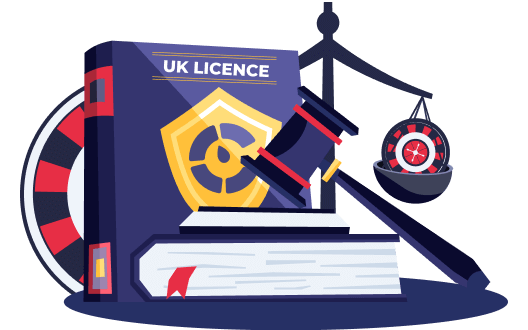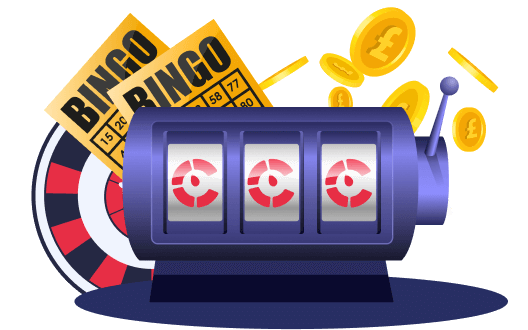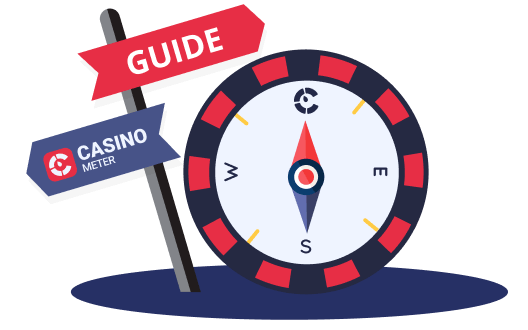Gambling Addiction – Prevention, Signs & Getting Help
Gambling addiction, or ludomania, is a common disorder that can be extremely harmful to a person's mental and physical health.
According to the Royal College of Psychiatrists (RCPsych), one in 100 people have a classified gambling disorder, but a further four to seven in every 100 gamble at levels that are at risk of developing into addiction.
Unfortunately, there's still a stigma surrounding the condition whereby many people dismiss problem gamblers as lacking willpower, rather than as sufferers of a psychological disorder.
The more knowledge there is about the subject, the more likely it is that we can help someone suffering from the condition and thus reduce the effects of gambling addiction on society.
This guide aims to shed some light on what gambling addiction is and how we can recognise it. It also contains steps towards helping a betting addict and ways we can stay safe while gambling.
What is gambling addiction?
The UK gambling regulator, the Gambling Commission (UKGC) sums up gambling addiction in this nutshell:
'Gambling addiction' means gambling to a degree that compromises, disrupts or damages family, personal or recreational pursuits.
To take it a step further, we could consider any time we feel a powerful desire to gamble as an example of problematic behaviour, especially if we want to do it ahead of other important matters.
This is because this powerful urge is fuelled by the brain's need for positive chemicals that it remembers from previous bets, including serotonin and dopamine. Known as the 'gambler's high', this euphoria is like the rush we sometimes find when we drink alcohol or take drugs, which is why we should take gambling addiction just as seriously as other dependencies.
Gambling addiction can lead to gambling-related harms if left untreated. These include, but are not limited to, the following:
- Accumulation of debt
- Resorting to crime
- Loss of employment
- Breakdown of relationships
- Deterioration of physical and mental health, sometimes suicide
- Harm to loved ones and people in other social networks.
As we continue to understand gambling addiction better, and what causes it, we can see that it's much more common than experts thought just a few years ago.
With that in mind, it's important to know what to look for in gambling addiction behaviour and what steps we can take to remedy it. The next two sections will cover this.
How to diagnose a gambling addiction: 6 symptoms to look out for
Gambling addiction is a diverse and complicated disorder which can creep up on us if we're not careful. It can also blend into everyday behaviour which makes it difficult to spot.
The DSM-5 definition of gambling addiction describes it as a 'persistent and recurrent problematic gambling behavior leading to clinically significant impairment or distress', but there are also smaller tell-tale signs that we can look out for.
While it's impossible to cover all of them in this article, we can still look at some of the most common.
1. Obsessing over money
Let's start with the most obvious factor: money. But it's not just losing big amounts of money that points to gambling addiction; it's also when we start to think about it obsessively.
Maybe we're dreaming of what we could buy if we land a major jackpot, or we might be working out how we can raise money to continue playing.
Either way, if we find ourselves thinking about gambling-related money topics throughout the day, then we may already be on the slippery slope.
2. Losing track of time
Gambling can take up a lot of time, but we don't always realise it. Like anything that demands our constant attention, it has a way of making time dissolve so that we've suddenly spent an hour on a slots game that felt like just five minutes.
This can result in feeling like we don't have time for other important activities, and even sleeping and eating can feel like an intrusion. If this happens, then it's time to get help.
3. Suffering at work
With gambling demanding so much of our time and attention, it can often impact the quality of our work or studies. A clear sign that something isn't right is when we miss deadlines or get lower grades because of the time we spend gambling.
This can often lead to a destructive spiral. The stress of dealing with the consequences of poor work might mean we seek gambling for solace, and the whole process starts again.
4. Falling out with people
Gambling, especially online, tends to be an anti-social activity that sees us bet alone.
Prolonged periods of time away from family and friends isn't great for relationships; in fact, it's often destructive. Also, if our boss or teacher sees that our work is suffering, this is likely to lead to conflict.
Gambling addiction often leads to strong disagreements with those who care about us, making it a clear sign that something's wrong.
5. Feelings of regret
Gambling losses often come with feelings of regret as we lament the money we've just spent. When we get this, it's important to recognise it and take action to prevent it from happening again.
6. Having depressed thoughts
While this symptom may appear obvious, problem gamblers often try to blame psychological distress on other issues, leaving them free to continue gambling.
The fact is, though, that the adrenaline we feel when playing is often followed by feelings of anxiety, fear and depression, especially once our money has run out.
While these symptoms are unpleasant to think about, it's important that we frequently ask ourselves if any of them apply to us while gambling. If so, then it's crucial to get help before the situation worsens.
How to help a gambling addict
The first step on the road to recovery from gambling addiction is to recognise that a problem exists. But the thing is, this is often the most difficult part.
If you suspect that someone you know is a problem gambler, or that you might have a problem yourself, then compare the behaviour to the gambling addiction symptoms above or take a gambling questionnaire.
Once it's clear that an issue exists, then there are several routes you can take to get help, but the best option is to get in touch with a UK gambling support service.
Luckily, the UK has several excellent options thanks to its well-regulated betting industry. Gamcare and Be Gamble Aware both have professional staff who have a vast well of experience in dealing with all types of betting addiction. Gamcare also has a special recovery toolkit, with blocking software, self-exclusion tools, and a workbook to help you fight back.
If you or the person you know don't feel ready to talk to a professional, then there are several safe gambling techniques we can use to help deal with the problem.
How to gamble safely
When gambling, it's always better to play with the philosophy of 'prevention is better than cure' at the back of your mind.
Practising safe gambling techniques is the best way of doing this. By following simple rules every time you play, you'll not only be minimising the probability of addiction, you may save yourself money in the process.
1. Treat gambling as entertainment you pay for, not a way to make money
The in-built house edge (the casino's guaranteed long-term profit) that every casino game has means we're more likely to lose money than make any.
So, it's much better to think of it as a way of paying for a limited period of entertainment, like we would for the new Batman film, for example. When the entertainment stops, we do something else.
2. Never play with borrowed money
If you have to delve into an overdraft or loan to play, then you can't afford it. Only play with money you actually have and can afford to lose.
3. Impose time and spend limits on your play
Every good casino now has time and spend limits you can apply to your gambling account, with many even offering self-exclusion tools. It's a good idea to use them if you feel your gambling is getting out of hand.
4. Always play in the right state of mind
Make sure you play when sober and feeling unaffected by other issues that may affect your state of well-being. We make our worst gambling decisions when we're not in the right frame of mind.
5. Engage in other fun activities
Don't make gambling the focal point of your day, but one of many activities that you do. Plan and have other things to look forward to, preferably in the company of others.
6. Stay vigilant
Gambling addiction isn't something that we can solve forever; it's always a possibility. As such, we need to always keep a lookout for gambling addiction symptoms, both within our own behaviour and that of others.
If any of the above symptoms apply to you or a friend, then we urge you to seek help as soon as possible to nip the problem in the bud. The worst thing you can do is sit on your hands and do nothing.
Stay safe!





